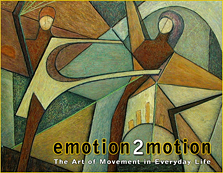What to do when called to court
By Allison Bell Psy.D.
LINK
Most psychotherapy is done in the quiet of an office, talking about what is going on, and how to make things better. Yet, mental health professionals also are confronted with more difficult issues from time to time. And, in the case of divorce, the court system may require our input.
This is not surprising, because divorce is a regressive experience that can bring out strife and conflict. Or the divorce may be initiated because of behavior that requires a court’s attention, like abuse, violence, deceit about money, or manipulation of the children. Either way, it’s not a happy place for the mental health professional, whether it be a psychiatrist, a psychologist, a social worker, or a counselor. If you are in this position as a parent or as a professional, you have my sympathies.
Now let’s talk about how to get through it.
Getting Legal Help:
In divorce, parental conflict has many sources. Sometimes it’s about serious personality differences, psychiatric disturbance, communication difficulties, or one of the parents shirking responsibility with regard to money or the children. Or worse, conflicts can arise out of substance abuse, domestic violence and child abuse.
Often, children are caught in the middle between divided loyalties. If they’re lucky or wise, members of these families, adults and children alike, seek assistance from therapists in the community. More than one therapist may be engaged to address individual needs as well as entanglements within the family system.
At some point, one or both parents may turn to lawyers, viewing solutions that the legal system might have for their problems as more defined and achievable. After all, divorce is a legal proceeding. The good news is that often legal resolutions can occur far away from court and may offer needed relief and restructuring for the family. Not everyone needs to go to court to find a middle ground with a difficult ex-spouse.
That being said, some parents enter into litigation, which is costly, adversarial, and mostly heightens the level of conflict before a judgment is obtained. In such circumstances, therapists may find themselves unwittingly caught up in the legal battle and may be subpoenaed to testify on behalf of a parent or a child.
Going to Court:
Mental health professionals are not schooled or trained in legal matters and are often quite ignorant of the laws and statutes that govern their jurisdiction with respect to child custody and parental rights. In fact, most mental health professionals who sense or hear that a family is headed toward litigation will refuse to become engaged in treatment, for fear of becoming entangled in the polarization and threats to confidentiality that litigation creates.
Mental health professionals are helpers, trained to assist people who are interested in examination and change; they’re trained to diagnose and treat—but decidedly not trained to offer testimony to the Trier of Fact in a court of law.
In my practice as a neutral, court-appointed forensic custody evaluator, known also in some states as a GAL—Guardian Ad Litem— I’ve testified many times throughout southern New York State and western Massachusetts. Even with my experience and specialized training, I can still be found in the bathroom prior to trial, steadying my nerves before getting on the witness stand. If someone tells you that this is easy work, don’t believe them.
Yes, I am an experienced professional in the custody world, and know what I’m supposed to do. Let me fill you in on something: Anxiety before testimony is normal. Why? Courtrooms and courthouses are intimidating environments, and I truly empathize with any mental health professional who’s been served with a subpoena to testify.
Back to the bathroom; after my gut check, I gather my notes, find myself strengthened, and go do the job. Interestingly, many professional athletes have a similar experience before a big game.
You may be called upon. And, the job is doable. Your involvement, if you are subpoenaed, is for the patients, but most of all it is for the good of the children. And, if you choose to perform professional child-custody evaluations, it is also for the good of all involved. These cases are never easy. There are always two sides to a story, and it will take all that you have to do the job right.
Just remember that judges need expert testimony—and are required to gather the facts as best as they can.
Which gets me to this question:
What do you do when you get that subpoena?
How do you prepare to testify?
After so many years of appearing in court, I’ve received calls from frantic colleagues time and again and find myself shepherding them through the ins and outs of how to be a witness in Family and Supreme Court. If you are called or choose to do expert work, I would advise getting an experienced peer to provide some guidance. Perhaps, someone connected to a local law school, or do your research to find the right fit for you.
We all need allies
Take Away:
The court system and the world of mental health often intersect in cases of divorce and custody rights. With two million people getting divorced yearly in the United States, it makes for many potential legal cases. Not everyone litigates. In fact, it is a minority.
Sadly, there are many cases of disputed custody, parental neglect, abuse, and personality issues that may have triggered the divorce or worsened under the pressure of a break-up. Some cases do end up in litigation.
Children need stability and structure, as well as a healthy, loving environment. If you’re a therapist involved with such a case, know that you may be subpoenaed. Get advice. Feel supported. It will help you make better decisions.
If, on the other hand, you’ve elected to do custody evaluations as part of your professional work, understand that it can be a thankless job. Someone will be unhappy with what you have to report. Yet, judges truly appreciate this work, and it must be done, because the future of a child is often at stake.
Just make sure you take care of yourself. Support is out there.


